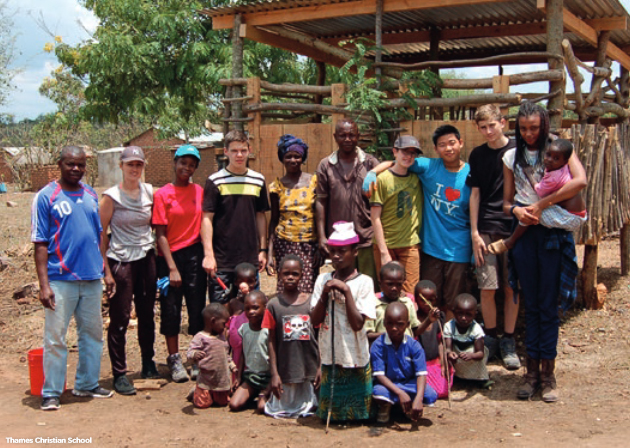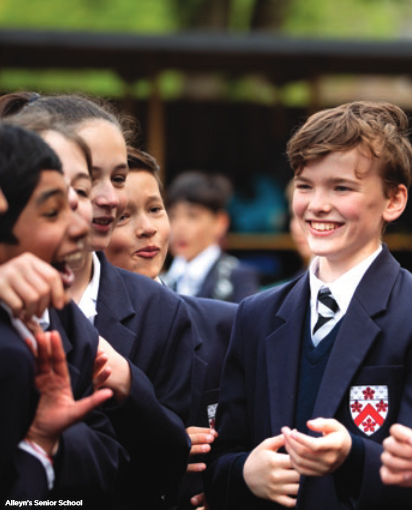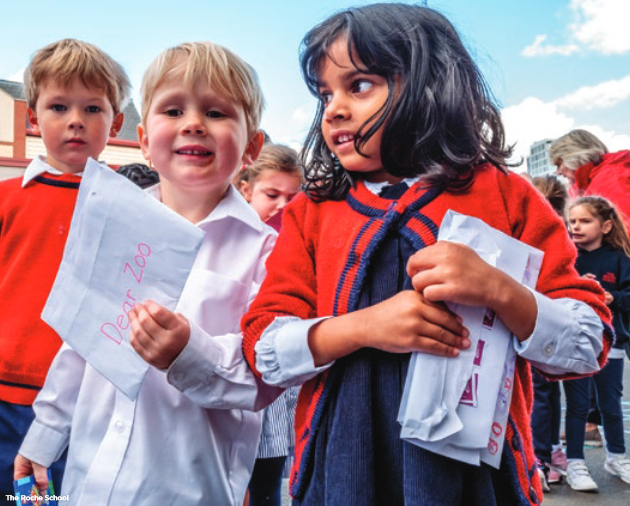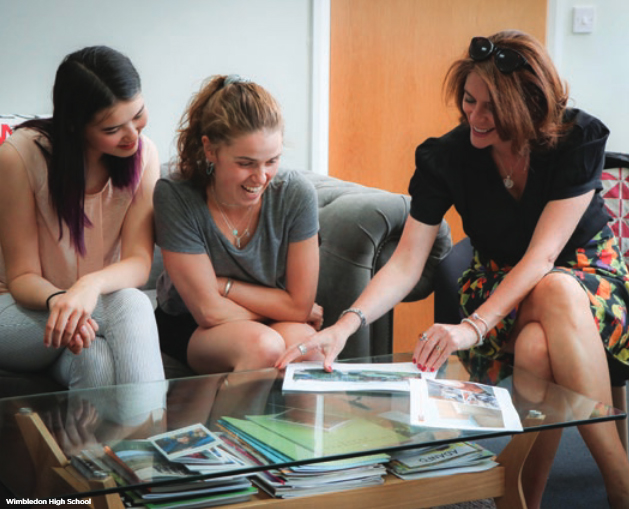Menu
Mobilising for political and social change is the hallmark of the new generation and it has far-reaching ramificiations on careers, income levels and empathy, says Georgina Blaskey.
There’s a fresh wave of political activism in the air. Call it the Brexit effect, #MeToo movement or 16-year-old Greta Thunberg’s extraordinary global influence, but young people have something to say and they’re talking with their feet. For the first time in a very long time, children are out marching on the streets of Britain.

Youngsters with their friends and families at the People’s Vote, girls with sisters, mothers, grandmothers and aunties on International Women’s Day, and of course, the pupils marching for climate change and joining a worldwide revolution started by one Swedish teen who camped out on her government’s steps on 20th August 2018. On 15th March 2019, an estimated 1.6 million students from 125 countries followed in Greta’s footsteps by walking out of school to demand climate change action.
Globally, Fridays for Future (FFF), Thunberg’s movement, attracts more girls than boys, which is perhaps fitting seeing as it has been claimed that climate change is also escalating existing gender inequality, according to a 2015 report by the World Health Organisation, which puts women as more vulnerable than men to the impact of extreme climate events.
However, engaging all children in politics and activism can help their personal development, their understanding of geo-politics and increase levels of empathy. Gone are the days where activism meant violent protests. For this generation, joining a march is a positive experience which many parents encourage. In the USA in 2018, a month after a gunman killed 17 people at a high school in Florida, thousands of school children took part in a 17-minute protest that involved walking out of their classrooms with signs and banners, while some held a minute’s silence.
Taking part in political activism is good for teenagers, according to an American study highlighted in the New York Times on the day of the protests. “The study, published in January in the journal Child Development, found that late adolescents and young adults who voted, volunteered or engaged in activism ultimately went further in school and had higher incomes than those who did not mobilise for political or social change,” the article said. The researcher found “civic activity linked to better academic and financial outcomes regardless of early school performance and parental education levels, two factors that usually drive later success.”

Many schools are keen to encourage the political passions of their pupils, creating scenarios in their timetable to give students a voice and a space to talk about the issues close to their hearts. Intellectual sparring has always been very much part of life at Putney High School. The skills to think independently, to argue persuasively, and to analyse critically are key to Putney High’s approach to learning and relevant in every subject, from humanities and languages to science. Harkness Table lessons and parliamentary-style sessions encourage debate at every opportunity. There is a democratic Student Council and girls practise “elle-oquence” and “power poses” with the school’s dedicated Orator in Residence.
From the campaigning Eco-committee to the school’s Feminist Book Society, one student says, “We are always prompted to engage ourselves in intellectually stimulating and challenging discussions”, and according to Orator in Residence, Miranda Kiek, “That’s one of the wonderful things about Putney High School students – they care about a lot!” Headmistress Suzie Longstaff, who has even initiated stand-up comedy lessons in order to encourage girls to stand up and think on their feet, explained, “Careers are changing so fast that we need to give girls the transferable skills that they will need in the future, and the confidence to speak up and strive for what they believe in.”
Emanuel’s sixth form students participate in an annual Model United Nations (MUN) event with a range of schools and students from across London, offering them the chance to represent an assigned nation, with the opportunity to present a solution to a worldwide issue, debating such topics as how to best protect languages across the globe.

As part of the Newton Prep Diploma, which has replaced Common Entrance at the school, pupils take part in a day based on MUN. Last year, they discussed foreign aid, this year they held a climate change conference. Year 7s were assigned different roles, from activist to mediator to statesman, and encouraged to research and develop that role. The activists led a protest using placards and banners, demonstrating outside the dining room where the ‘delegates’ were eating, and recruiting other year groups who were out playing to join them. The event raised the pupils’ political awareness, introduced them to the power of veto and explained how to forge alliances.
The day-to-day running of a busy school also offers myriad opportunities to transfer political beliefs into a community and make a tangible difference. At Wimbledon High School, a weekly online magazine gives students the chance to comment on issues of the day to the school community. The school’s Year 7s campaigned last year to get rid of disposable cartons in the dining hall. Year 10 students, on their own initiative, became involved in Merton Against.
Trafficking, to raise awareness and campaign against exploitation and human trafficking. Another group of students campaigned for LGBTQ and helped the school win a Stonewall Bronze award. “I don’t see snowflakes,” says Wimbledon High’s Senior Deputy Head Fionnuala Kennedy. “Rather, I work with engaged young people, who are acutely aware of the political landscape in which they are growing up, and the environmental challenges facing the world today. They are outraged and they are ready to use their voices for the good. It’s heartening and a privilege to see.”
Eco-activism has certainly come to the fore at Alleyn’s School, initially driven in recent years by the school’s pupil-led Eco Committee, but now also championed by a passionate wave of support from the wider pupil and staff body. This year, the school turned green for its inaugural Sustainability Week, which highlighted the importance of providing for the present without compromising the future.

A range of activities took place, including a meat-free Monday, lunchtime talks and the opportunity to donate clothes for reuse or recycling. A local business serviced and repaired pupil and staff bikes, pupils planted trees on site, and the Eco Committee policed recycling bins to instruct on correct recycling methods as well as working with the London Wildlife Trust to plant a new hedgerow on the edge of the Sydenham Hill Wood reserve.
Our concern for the planet starts even earlier than secondary school, however. At The White House Preparatory School, pupils are passionate about the impact they and their school are having on the environment. They lead assemblies on the subject and introduce ways to reduce their carbon footprint. “Children are committed to cycling – we are doing Bikeability so children learn how to cycle safely on the roads and also the Big Pedal encouraging families to scoot, cycle or walk to school rather than drive. This has been so effective we now need to buy a new bike and scooter rack to house all the bikes!” says Headmaster Tony Lewis.
Giving a voice to children undoubtedly raises awareness of their place in the world and helps to create outward-looking, engaged, invested young people. That can only be a good thing for all our futures.